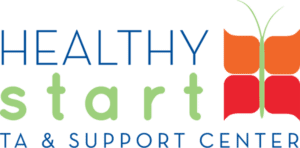What is the Catalyst for Infant Health Equity Program?
 To accelerate the reduction of infant mortality (IM) disparities and excess infant deaths in the US, HRSA launched the Catalyst for Infant Health Equity Program (i.e., the Catalyst Program) in September 2022. The program seeks to move beyond direct services to implement targeted policy and systems changes that are focused on one or more specific social determinants of health (SDOH) domains contributing to IM disparities in a particular county/jurisdiction. The goals of the Catalyst Program are: 1) to continue reducing overall IM rates in the US, and 2) to decrease and ultimately eliminate disparities in IM across racial/ethnic groups by achieving steeper declines for groups with the highest rates.
To accelerate the reduction of infant mortality (IM) disparities and excess infant deaths in the US, HRSA launched the Catalyst for Infant Health Equity Program (i.e., the Catalyst Program) in September 2022. The program seeks to move beyond direct services to implement targeted policy and systems changes that are focused on one or more specific social determinants of health (SDOH) domains contributing to IM disparities in a particular county/jurisdiction. The goals of the Catalyst Program are: 1) to continue reducing overall IM rates in the US, and 2) to decrease and ultimately eliminate disparities in IM across racial/ethnic groups by achieving steeper declines for groups with the highest rates.
The Catalyst Program utilizes the social ecological model as a framework for examining and addressing disparities in IM and excess infant deaths. In this model, individual outcomes and health disparities across racial groups are shaped by broader interpersonal, institutional, community and policy factors such as personally-mediated and institutional racism, providers’ cultural competence, access to quality health care, neighborhood quality, and economic and housing policy.
HRSA awarded nine Catalyst grantees to support the implementation of existing action plans that applied data-driven policy and innovative systems strategies to reduce IM disparities and prevent excess infant deaths. Action plans had to address the SDOH (i.e., environmental, social, and economic conditions), and/or the structural determinants of health (e.g., institutions, systemic barriers, policies) that contribute to disparities in IM.
